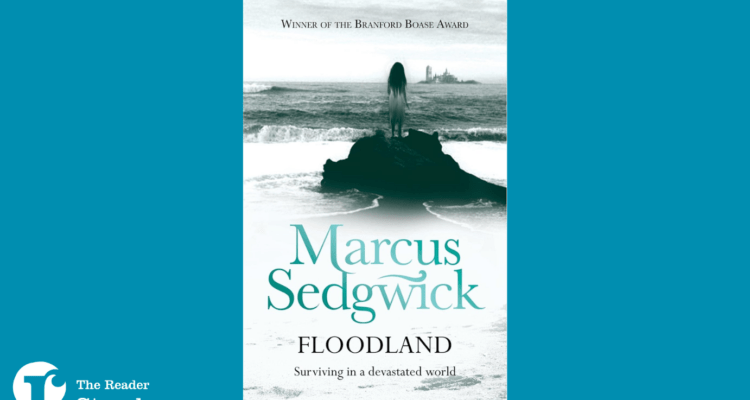Featured Poem: The Darkling Thrush by Thomas Hardy
This week's Featured Poem is The Darkling Thrush by Thomas Hardy, chosen by The Reader's Publications Manager, Grace Frame.
Not every poem seems to tell a story, and yet this is one that does, from beginning to end. Listening to this little tale unfold makes the length of the poem feel rather less intimidating somehow; this is a poem to be read aloud, a poem in which the sound of things makes all the difference. But it is interesting that the title of the poem focuses on the thrush, because by the end of the second verse he is yet to be introduced, and we may by this point have forgotten that it was supposed to be about him at all. Instead, these initial verses simply begin and end with ‘I’.
We aren’t told very much about this ‘I’, and I almost wonder whether he feels there isn’t much to be said of him. We do hear that he is ‘fervourless’, and that for some reason he is out walking when everyone else has made it back home to the warmth. He leans upon the gate as if he is not in a hurry to get back. Could he be worn out? I come back to that ‘fervourless’ again: sometimes I think we can stop not for any good reason but because we haven’t got the energy to keep ourselves going in any meaningful way. ‘Fervour’ makes me think of passion, enthusiasm. To be without that must be to feel lifeless: the opposite of what we are expected or ‘supposed’ to feel during a festive season.
But what this ‘I’ also feels is that this sense is shared by every living or natural thing around him. If walks are supposed to inspire us, there is absolutely nothing to inspire the person here, where the landscape speaks of death, not birth, and of mourning instead of celebration. I am particularly drawn to the line about ‘the ancient pulse of germ and birth’. We should surely be able to rely upon the regularity of the earth renewing itself: it has done this for many thousands of years. But even the seed ‘was shrunken hard and dry’, as if it has become a mere thing, an empty shell, instead of a life force, a ‘pulse’. I suddenly realise that this word is carrying two meanings for me at this moment in the poem: something I hadn’t noticed before.
You reach the point where there is absolutely nothing left, anywhere.
You reach the point where there is absolutely nothing left, anywhere. But it is at that point that the next verse begins, and here suddenly there is a shift. ‘At once’: this reminds me of the magic of our favourite Christmas stories, when suddenly something or someone appears to transform our circumstances, or perhaps even how we perceive them. It is so interesting that the person now hears the voice of the bird before he notices more closely the creature who is singing. The voice is so generous and expansive, with its ‘full-hearted evensong / Of joy illimited’, that it is a surprise to then see how diminished the bird is in appearance. The bird sings from a full heart when everything is empty. He sings as if the world that he is in knows no limits.
full-hearted evensong
Of joy illimited
But the poem ends with what could perhaps be two choices. The bird, significantly, ‘had chosen thus to fling his soul’, and the last verse leaves the human figure also with two alternatives: to accept what he sees ‘written on terrestrial things’, or to listen to something else, to another source of ‘knowledge’. I’m listening in to the birds now as I write, though I wouldn’t have been without this poem, and it certainly is a wonder to be reminded that there is something present and available that is other than and beyond the human voices by which we are surrounded.
The Darkling Thrush
I leant upon a coppice gate
When Frost was spectre-grey,
And Winter's dregs made desolate
The weakening eye of day.
The tangled bine-stems scored the sky
Like strings of broken lyres,
And all mankind that haunted nigh
Had sought their household fires.
The land's sharp features seemed to be
The Century's corpse outleant,
His crypt the cloudy canopy,
The wind his death-lament.
The ancient pulse of germ and birth
Was shrunken hard and dry,
And every spirit upon earth
Seemed fervourless as I.
At once a voice arose among
The bleak twigs overhead
In a full-hearted evensong
Of joy illimited;
An aged thrush, frail, gaunt, and small,
In blast-beruffled plume,
Had chosen thus to fling his soul
Upon the growing gloom.
So little cause for carolings
Of such ecstatic sound
Was written on terrestrial things
Afar or nigh around,
That I could think there trembled through
His happy good-night air
Some blessed Hope, whereof he knew
And I was unaware.
Thomas Hardy
Share
Related Articles

April’s Monthly Stories and Poems
The clocks have not long changed to herald the longer hours of daylight, making us consider the passage of time…

The Storybarn Selects… From The Reader Bookshelf
Our last deep dive into the 2023/24 Children and Young People's Reader Bookshelf is a review of Floodland by Marcus Sedgwick…

March’s Stories and Poems
March’s stories, extracts and poems have been chosen on the theme ‘Moving on’, which perhaps feels especially relevant as we…


